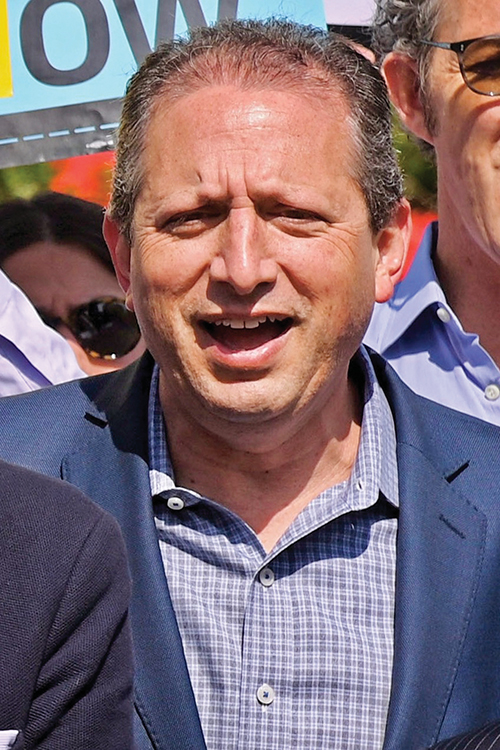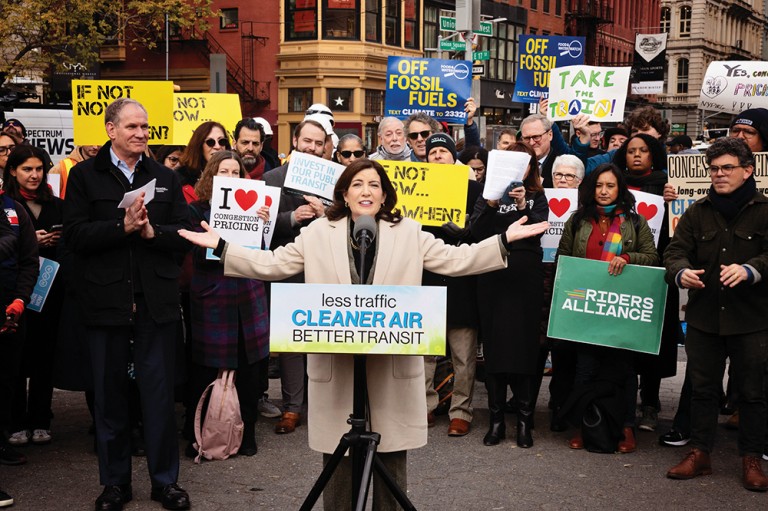By Michael V. Cusenza
In June, just days away from the launch of congestion pricing, Gov. Kathy Hochul pounced on the brakes, directing the Metropolitan Transportation Authority to indefinitely pause the polarizing transit plan.
On Friday, the Hon. Arthur Engoron effectively removed the stop sign, denying Hochul’s motion to dismiss two lawsuits to restore congestion pricing.
“The battle isn’t over. But right now, this is a victory for our coalition of transit riders, environmental advocates, disability justice organizations and New Yorkers of every borough,” City Comptroller Brad Lander said. “And this development is also a blow to the governor’s misguided belief that she has the ultimate authority to override an established law and remake it to fit her whims. When Gov. Hochul halted congestion pricing, she singlehandedly deprived millions of New Yorkers of $15 billion worth of transit improvements that would enable more frequent trains, cleaner air, faster buses, and greater accessibility—and the first-class transit system this first-class city needs and deserves.”
In March, the MTA Board approved Central Business District toll rates—more commonly known as congestion pricing. Passenger vehicles and small commercial vehicles – sedans, SUVs, pick-up trucks, and small vans – paying with a valid E-ZPass would be charged $15 during the day and $3.75 at night, when there is less congestion, to enter the congestion relief zone in Manhattan below 60th Street. They would be charged no more than once a day.

File Photo
City Comptroller Brad Lander called Friday’s ruling “a blow to the governor’s misguided belief that she has the ultimate authority to override an established law and remake it to fit her whims.”
Trucks and some buses would be charged a toll of $24 or $36 during the day to enter the congestion relief zone in Manhattan below 60th Street, depending on their size and function, and $6 or $9 at night. The toll for motorcycles would be $7.50 during the day and $1.75 at night. Yellow taxi, green cab and black car passengers would pay a $1.25 toll for every trip to, from, within or through the zone; customers of app-based for-hire vehicles would pay $2.50. Qualifying authorized emergency vehicles and qualifying vehicles carrying people with disabilities would be exempt; as would school buses contracted with the City Department of Education, buses providing scheduled commuter services open to the public, commuter vans licensed with the City Taxi and Limousine Commission, and specialized government vehicles. A 50-percent discount will be available for low-income vehicle owners and a tax credit is available for low-income residents of the Central Business District.
The program was set to launch on June 30. However, on June 5, Hochul, who had previously lauded the program, shockingly switched gears, announcing that she had directed the MTA “to indefinitely pause congestion pricing to avoid added burdens to working- and middle-class families.”
In December, 2023, Hochul touted the plan, stating that congestion pricing “means cleaner air, better transit and less gridlock on New York City’s streets.
“This initiative will make New York City a global leader in transportation policy,” Hochul added.

